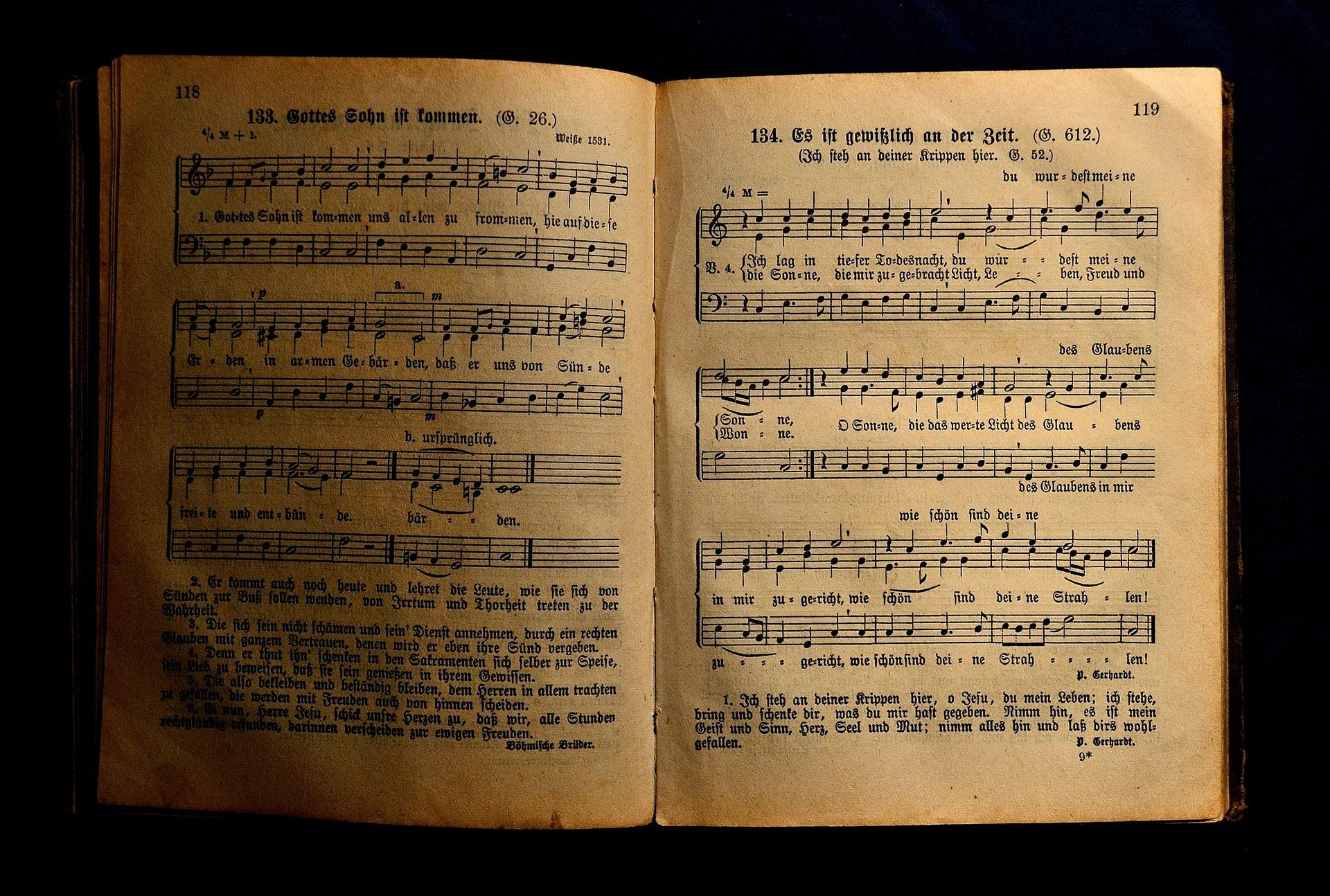Do prove your ability, knowledge, or skill, you have to be tested and singing is no different. If you want to prove your level in singing, grades are one of the most common ways to do it.
Lots of people can sing to differing degrees, but truly excellent singers prove how good they are through their range and repertoire, something that singing qualifications and certifications seek to test.
If you want to become a professional singer or work in the industry, it's important that you try singing different material and work out what your level is, but do you actually have to do every single grade?
Let's see why we have singing grades and whether or not you really have to study every single one of them!

Why Are There Singing Grades?
As a skill, singing relies on physical technique, knowledge, and development. Some of the greatest singers have an ability known as absolute pitch, where they can reproduce or recognise the pitch of any note.

Even if you have perfect pitch or absolute pitch, there are other skills you need to work on to become an excellent singer. These skills include things like breath control, head voice, chest voice, ear training, etc.
Thanks to exams from Trinity College London, ABRSM, St. Cecilia, or the New Zealand Music Examinations Board (NZMEB), you can gain a certification that attests to your level of singing.
These tests are designed to test both performance and music theory and training to give a clearer indication of a singer's level and ability.
They generally include pieces from different musical genres so that singers are forced to step outside their comfort zones and become better singers overall.
Unlike standardised testing in schools where students tend to be graded on a curve, these music exams don't pit you against your fellow students and nor do they grade you according to how everyone else performed.
Instead, your musical skill and performance are gauged against a set of standards outlined by the exam board. For most musical grade exams, students are awarded a Pass, Merit, or Distinction according to how well they did against the universal standards outlined by the exam board.
However, even if you do exceptionally in one level, that doesn't mean that you don't necessarily have to do the following level. In each exam, you're starting from zero and will have to perform well to achieve the highest honours.
Basically, points from a previous exam don't count towards your next one.
That doesn't mean it's not worthwhile doing well on an exam or even aiming for a distinction on your singing exam, it just means you have to do it for every exam.
The Different Grades in Singing
You may already be familiar with or have heard of the grades in singing. If not, there are 8 in total with Grade 1 being the easiest and Grade 8 being the most advanced.
Though the difficulty may change, each grade has a few things in common.
You have to sing at least three pieces from a list of approved pieces of differing difficulty. You also have to sing a traditional song without any accompaniment from memory.
There are also tests on aspects of music theory such as sight-reading and an aural test.
This is definitely the case with ABRSM, but other examining bodies may differ slightly in terms of structure and skills being tested.
Let's have a look at each of the grades.

Grades 1-4
- Three songs with piano accompaniment
- One unaccompanied traditional piece, sung from memory.
- Sight-singing an unfamiliar short piece of music
- A level-appropriate aural test
You don't have to sing songs in their entirety and the syllabus will explain which parts you are supposed to sing from each piece. Naturally, the higher the grade, the more difficult the pieces will be and the more singing that you'll have to do.
At Grade 1, for example, candidates will only have to sing for four minutes with accompaniment, but by the time they get to Grade 4, they'll be singing for six minutes.
Grade 5
Grade 5, at least in ABRSM, is a little different.
In terms of the exam, there are the same parts as the previous ones: three songs from the list, one traditional song, an aural test, and some sight-reading.
However, Grade 5 includes a music theory test that is a prerequisite for the later grades.
Grades 6-8
At these more advanced grades, you'll still have to do the same things as in the other exams, but you'll be singing for longer and the songs you choose from are more complicated and difficult to sing.
Supplementary Exams
In addition to singing, the singing exams also have supplementary exams that test you on music theory and other related skills. These can include tests on things like:
- arpeggios
- broken chords
- Vaccai exercises
- scales
- viva voce
- improvisation
Again, what you find in the supplementary exams depends on the examining board. In ABRSM exams, for example, you'll be tested on scales and arpeggios while Trinity exams don't have either of them.
As you would with any exam, check the syllabus and exactly what you'll be expected to do. Just one of the many tips to help you prepare for your singing exams.

When Should You Skip a Grade
As the singing grades are sequential, very talented singers may consider skipping the next grade they have to do.
But can you actually skip grades?
Technically, you can skip some of the grades.
At the lower grades, you can skip grades, but you shouldn't skip grades just because you don't like doing the tests and want to do as few of them as possible.
Students who find themselves "between levels" may be encouraged to skip the lower grade and work towards the next grade rather than wasting their time on an exam that's too easy for them.
At the higher levels, though, you shouldn't really be considering skipping any of the grades as there are a lot of important skills and techniques that you'll learn as part of the grades.
As we mentioned earlier, you can't skip Grade 5 either because it's a requirement for Grades 6 through 8. The music theory test is a component that's a prerequisite for these levels and an important part of your musical education.
Grade 5 is a turning point for most students and the point where your education in music goes from casual to serious.
Talk to your parents, music teacher, voice coach, or singing tutor about whether or not skipping a grade is right for you. You can also talk to other students who've skipped grades in the past to help you decide if you should.
It's also important to consider the different singing exams in New Zealand.
Do You Even Need to Take Singing Exams?
Just because you're taking singing lessons, it doesn't mean that you have to perform on stage or become a recording artist. Some people are happy to take singing lessons to improve their speaking voice, gain self-confidence, or because they enjoy singing for fun.
Singing lessons can help people whose jobs include public speaking, projecting their voice, or addressing large numbers of people at one. A teacher, for example, could benefit from learning more about voice control as they need to use their voice for several hours a day without tiring out their voice.
In this example, they mightn't need to do any grading or take any formal exams in singing.
The grades are useful for proving a singer's level, especially in a formal or academic setting, but if a singer is good, then they mightn't need any formal qualifications. Wedding singers, cruise ship entertainers, voice-over artists, rappers, and plenty of other kinds of singers and artists mightn't even need to consider getting their Grade 8 in singing.
While the technical skills that are taught as part of these grades could be useful for all of them, the certifications themselves mightn't really do anything for them or their career.
If you're already the best at karaoke amongst your friends and that's all you need to know, then you don't need to waste your time with any formal examinations or every graded exam.
The important thing is that you do what you want with your singing. If you want to become a professional singer or study music or sing formally at a university, then the grades will be very valuable to you.
If you want to improve your singing for yourself, your self-confidence, or just for fun, then you can still take singing lessons or work with a singing tutor, but you mightn't need to do all the formal training and exams.
It's up to you!
Summarise with AI:















